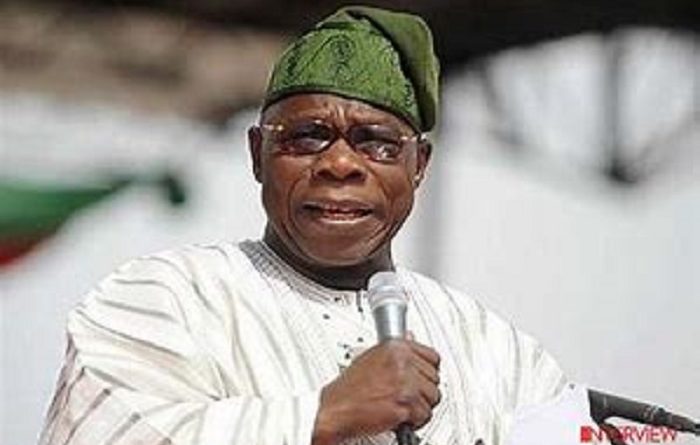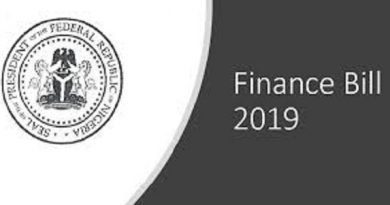OPC’s Agitation For Sovereign National Conference Was Not Meant To Break But To Strengthen Nigeria
Former President, Chief Olusegun Obasanjo traces the history of the Oodua Peoples Congress at the first anniversary to honour the memory of its founder, Dr. Frederick Fasehun
The remote cause for the establishment of OPC was the annulment of June 12, 1993 election and the immediate cause was Abacha’s heavy boot actions to actualise his permanent succession plan and programme.
Frederick put it thus, “A people as numerically strong, educationally powerful and legendarily sophisticated as the Yorubas lost out in the game of evils… It occurred to me that a recurrence must be pre-emptively countervailed”.
The idea was to establish a socio-cultural organisation as a pressure group. His first meeting was with three market leaders in Mushin – Mrs. Ogunbowale alias Iya Ijebu, Alhaji Ibrahim alias Baba Oja, and Mr. Taiwo.
An unpretentious personality and good mixer, he quickly immersed himself into the community. His proclivity towards Yoruba culture stood him out. Though he was learned and well-travelled, he thought nothing of freely associating himself with artisans and people, who were beneath his social status.
He stood out as a beacon of hope for the less-privileged in that neighbourhood, at first. As his community engagement increased, a greater responsibility of taking up the fight for the larger Yoruba nation was thrust on him.
Two weeks later, he had another meeting to bring more market women and men on board and, on that occasion, popular vote chose Oodua Peoples Congress, OPC, as the name of the new organisation.
The first difficulty of the organisation was the membership process which initially hit the brick wall but was somehow surmounted. Some more educated individuals who wanted to join felt discouraged by the low literacy of the pioneer members. With Frederick and Beko Ransoke-Kuti both of Campaign for Democracy working together, more educated people like Barrister Omodele, Baba Omojola and Barrister Femi Falana in addition to some students from University of Ife (now Obafemi Awolowo University, OAU) joined the Congress.
Apart from seeking to protect, to defend and to promote Yoruba interest, OPC, as established by Frederick had no subversive, violent or treasonable programmes or plans, rather it expanded its demands to include issues like Sovereign National Conference and change in revenue allocation formula to embrace derivation principle.
It was surely not an insurgent organisation. With such noble and attractive objectives, important personalities like Kudirat Abiola, Alhaja Kudirat Alao Aka-Bashorun and Tunji Braithwaite joined. OPC was thriving and with Frederick as a vocal member of Campaign for Democracy, a member of NADECO, founder of OPC, refusing to serve in Abacha’s Committee which Professor Sam Aluko, a distinguished economist, chaired, he was marked out for destruction.
After a Lecture titled, “Nigeria, Party Politics and Agenda for the Fourth Republic” at Ilorin in 1996, Dr. Fasehun’s hospital was stormed and he was taken away for interrogation on December 18, 1996.
He had anticipated that it would come to that especially with Obasanjo, Shehu Yar’Adua, Beko Ransome-Kuti, Christ Anyanwu and Shehu Sani already put in jail. After ransacking the hospital, the SSS boys took him away for interrogation. After that, they put him in the Intercentre, a special SSS detention outfit at Ikoyi, the experience of which I had in 1995.
His detention went from one month to two and from two to three. And no end yet, rather he was taken before Zakari Biu, an Assistant Commissioner of Police, who showed him a bit of police brutality before he was asked to write all he knew about NADECO, Wole Soyinka, Alani Akinrinade and Chief Enahoro.
By the time the detention was over after the death of Abacha, damage has been done to the detainee’s property, psyche, and whatever he was supervising or over-sighting which have been left unattended or left in wrong hands. That was my own personal experience and situation as well when I was imprisoned by Abacha.
With Frederick, OPC suffered from his detention. Taiwo, who was one of the pioneer members, tried his best to run the outfit but he was overwhelmed. During that period, Ganiyu Adam joined up and under him, a brand of young hot-heads came together to form a youth wing in the OPC. Quality has been sacrificed for alloy.
Disorder pervaded instead of orderliness. Gani Adam cashed in and Frederick came home to a divided OPC between Taiwo and Ogunbowale group and Gani Adam group. As Frederick saw, “Both groups wore the toga of illiteracy for different reasons… Discussions revolved on what charms to wear to confront law-enforcement agents, how to wear them, how to hold them in place and so on.” Frederick precisely described the OPC that I found when I became elected President in 1999 and I kept my distance from them.
I would have nothing to do with such a group. And that remained my position until Prince Osibote came to me about the end of 2019 to tell me that it is now a new OPC which is following the objectives and programmes of Dr. Fasehun.
Frederick could not accept and live with what he met of OPC when he came back from detention and he was not able to change and reform it before he died, although he tried to seek employment for some of them. As a Christian, he abhorred what he met which was not in line with his objectives and purposes.
But I must say that there is still room and need for the type of OPC that Dr. Fasehun originally established with relevant modification of objectives in light of present day Nigerian situation.
Dr. Fasehun made three cogent political points about OPC. One, agitating for Sovereign National Conference is not meant to break Nigeria up but to strengthen its unity on the basis of justice, equity, mutual respect and healthy competition among the constituent units. Two, with MKO Abiola’s death in detention, the agitation by OPC for Abiola to be released to take office as elected President was buried. Three, he also alleged that Chief Gani Fawehinmi working in collaboration with Dupe Onitiri-Abiola made contribution to the fractionalisation of OPC.
On most of the occasions that Dr. Fasehun came to me to unburden his mind about Nigerian situation, he left me in no doubt for his patriotism and concern for Nigeria which is vividly brought out in poetry – ‘My Country’ by him.
Fasehun was gentle and meek but irrepressible as far as national issues were concerned. When Abacha unleashed his reign of terror and began his mad self-succession programme, even great nationalists like Bola Ige got fed up with a ridiculous situation where five political parties nominated the same candidate – Abacha as their candidate for the election which Bola described as five leprous fingers and adopted ‘sidon look’ attitude, Fasehun stood up with Oodua Peoples Congress, OPC, to confront and fight the menace of Abacha.
Let me put myself in position of Dr. Fasehun today, if he were alive and only on two current issues of national importance – security and political structure. When he was alive, both were of great concern to him. What I say from now on could be attributed to him if he were alive or could be shared by both of us as he unburdened his mind to me on a number of occasions when he was here with us.
The first duty and responsibility of a leader of any human community or organisation is security of life and property of all the members of the community, the organisation or the society. From time immemorial, this started as individual, developed into family, settlement, community, national, multi-national and alliances.
These are all to strengthen, enhance and guarantee total security. For every individual or family, there are layers of security apparatus and arrangement. They are complementary and supplementary.
The inadequate ones are buoyed up by others to ensure adequacy of security. There is no doubt that the national security architecture, apparatus, system and arrangements in Nigeria today have failed to measure up to the needs of the citizens in different parts of the country.
Hon. Yakubu Dogara, with his understanding as a former Speaker of the House of Representatives, on February 6, 2020, put it graphically, “From Boko Haram-ISWAP led by Al-Barnawi, Boko Haram led by Shekau and Ansaru insurgency to farmers/herders conflict, banditry, kidnappings, ethno-religious conflicts, cattle rustling, etc, we are confronted with a crisis that is unparalleled in our history. The death spiral appears unstoppable.”
Even the President himself confessed that he was shocked to come to know that things are that bad.
The Governors in different States of the country as the Chief Security Officers of their respective states were taking measures to enhance and buoy up security for their citizens.
These measures vary from paying off bandits, to hunting them down with vigilantes and hunters and to innovative joint efforts like Amotekun. What these governors have shown was that they were concerned and they cared.
I would not know if any of them was shocked but most of them took steps as they deemed fit to enhance the security of life and property for their citizens and to augment the failing and inadequate security provided at the national level.
Whatever we may feel individually or collectively by these different measures, these governors must be commended and where necessary, they should be helped to refine and make robust and efficient the effective measures they have taken, from Katsina to Zamfara, from Adamawa to Benue and from South East to South West.
From my personal observation as I talked to people and people across the board talked to me, nothing has united the people of South West like Amotekun since independence except independence itself. Not even the civil war was such a unifier.
I commend the Governors of South West for their bold and courageous measure taken beyond political party affiliation to improve security architecture and care for their citizens. I particularly commend Governor Seyi Makinde of Oyo State for his leadership on this matter and for sharing their thinking with me.
Security measures are never static and security is the responsibility of all of us but by appointment and elections, some have more responsibility than others.
It is instructive to note that the Nigerian Supreme Council for Islamic Affairs (NSCIA), under the leadership of Sultan of Sokoto, became extremely worried about the level of insecurity in the country and then called on President Buhari to declare a state of emergency for security in the country.
The NSCIA has followed the line of other organisations, institutions and individuals who have expressed dismay and disappointment at the level of insecurity and criminality all over the country as if there is no government in charge in this country.
Calling for an emergency is a wake-up call for the Federal Government to know the magnitude of the level of insecurity and to take effective measure or measures to stem the tide.
The Northern Elders Forum has spoken out on the pervasive insecurity in the nation. The Governor of Borno, Babagana Umara Zulum, has pointed out that in his eight months in office, Auno, a community in his state, has been attacked six times.
The Governors of South West acted, believing that Amotekun is one of the necessary measures. And most people of the South West support them.
I will strongly advise that Amotekun and other measures put in place should continue to be refined and improved upon to serve as adequate complement and enhancer of present, disappointing and inadequate, national security architecture and provision.
We must learn from the past particularly from Native Authority Police. Professionalism and adequate equipment for the job are imperative for a serious security apparatus. Security is the foundation of all human development and progress. Common assured security should lead to common and shared prosperity and development.
There has been embarrassing paralysis and katakata in the present nation’s security house as if we have nobody in charge. If it had happened before, it was not so brazenly in the public domain.
This type of situation cannot do credit to us as Nigerians and it can only sap confidence in the security architecture for people to say, ‘no wonder’. The President must accept the challenge and the responsibility.
This year 2020, is the year set aside by the African Union, AU, in its agenda to silence the guns. If we don’t silence the guns in our own land as contribution to AU agenda, guns will continue to silence us individually and collectively.
Let our leaders particularly be bridge builders rather than wall builders, more of peace-makers than peace-talkers.
War-mongering, conflict-encouragement, threats and intimidation, exclusion rather than inclusion and lack of justice, harmony, wholesomeness, cooperation, security, well-being and common prosperity can only lead to our being piecemeal looted, consumed and destroyed.




